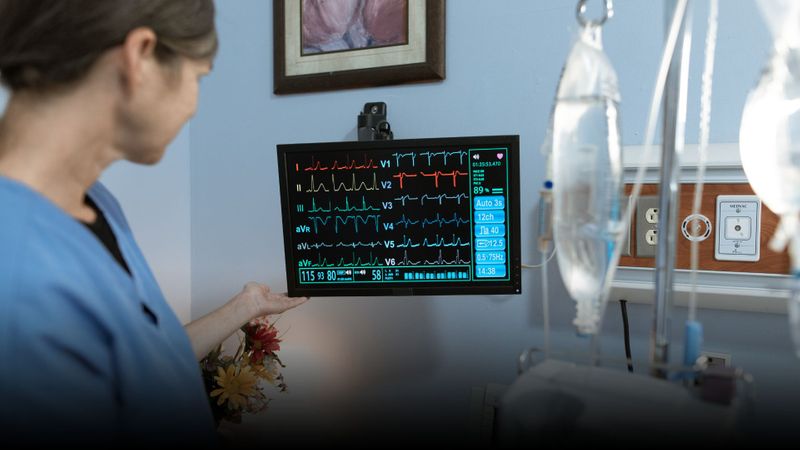BLOG
Recent Updates
How Legal Nurse Consultants Provide Critical Analysis in Legal Cases
At The Professional Care Management & Advocacy Group, we know that bridging the gap between medicine and law is no small task. That’s where our legal nurse consultants step in. With deep clinical expertise and a thorough understanding of legal processes, we help attorneys uncover critical details, clarify medical records, and build stronger cases. Read on to learn how our Florida consultants help simplify complex cases and deliver the clarity attorneys need to move forward with confidence.
more
Navigating the Road to Resolution: How Long Does a Personal Injury Case, Wrongful Death, or Medical Malpractice Suit Take?
When individuals suffer injuries or loss due to accidents, negligence, or medical errors, they often find themselves navigating the complexities of personal injury, wrongful death, or medical malpractice cases. One question that weighs heavily on victims is: How long does it take to reach a settlement? The answer isn’t one-size-fits-all—it depends on several key factors, ranging from the severity of injuries to the legal intricacies of the case.
more
Mandatory Medicare Set-Aside (MSA) reporting from April 4th 2025
Mandatory Medicare Set-Aside (MSA) reporting began on April 4, 2025, marking a significant change in workers' compensation Medicare compliance. This new requirement mandates that workers' compensation claims payers report MSA amounts in settlements involving Medicare beneficiaries. The reporting includes details such as the MSA amount, payment structure, and period.
This change aims to enhance Medicare's coordination of benefits and provide greater transparency in settlements.
more
How Legal Nurse Consultants Support Attorneys in Medical Cases
At The Professional Care Management & Advocacy Group, our Legal Nurse Consultants serve as the vital link between complex medical records and the legal arguments attorneys need to win their cases. With decades of clinical experience and sharp analytical skills, we break down dense medical documentation into organized, meaningful data that drives results.
more
The Benefits of Medical Chronology Services: A Professional Perspective from The Professional Care Management & Advocacy Group, Gainesville, FL
Clients benefit significantly from the medical chronologies provided by The Professional Care Management & Advocacy Group in Gainesville, FL. These medical chronology services offer a detailed, structured patient medical history timeline, including treatments, procedures, and events. This organized overview helps attorneys quickly understand the medical aspects of a case, leading to more successful outcomes.
more
Exploring the Role of a Legal Nurse Consultant: Insights from The Professional Care Management & Advocacy Group
Legal Nurse Consultants (LNCs) are pivotal in bridging the gap between the medical and legal fields. At The Professional Care Management & Advocacy Group, Gainesville, FL, we recognize the unique contributions LNCs make to our team and the broader legal community. Here, we delve into the advantages, disadvantages, common misconceptions, and the integral role of medical chronology services in the work of an LNC.
more
Demystifying Depositions: What Happens and How Care Advocacy Professionals Support You
Depositions are a key component of the legal process in personal injury cases. As a sworn, out-of-court testimony, they allow attorneys to gather vital information from witnesses, including the injured party. At The Professional Care Management and Advocacy Group, our Legal Nurse Consultants (LNCs) provide critical support to ensure clients and attorneys are well-prepared for depositions. With added FAQs and expert tips, this guide aims to turn uncertainty into clarity.
more
Injury Assessment: How Care Advocacy Professionals Can Help Document Injuries for Personal Injury Claims
At The Professional Care Management and Advocacy Group, we understand the importance of thorough injury assessment and documentation in personal injury cases. Our role goes beyond providing care—we ensure injured individuals have the evidence needed to build a strong case for their claims. Let’s dive into the essential steps we take to support our clients through this critical process.
more
Understanding the Ripple Effects: Long-Term Impacts of Injuries on Quality of Life
At The Professional Care Management and Advocacy Group, we recognize that injuries extend far beyond the physical. They create ripples that touch every aspect of a person’s life—emotional well-being, social connections, financial stability, and overall happiness. Our mission is to provide comprehensive support, ensuring our clients feel empowered every step of the way.
more
Prioritizing Safety and Building Excellence: A Comprehensive Guide for Care Advocacy Professionals
In the ever-evolving field of professional care management and advocacy, workplace safety and employee development go hand in hand. By combining a commitment to safety compliance with impactful training programs, we foster an environment that prioritizes our people while ensuring top-notch care for those we serve.
more
Navigating Workplace Safety Regulations: A Blueprint for Advocacy Professionals
In the care management and advocacy field, workplace safety is more than just compliance—it's about creating a secure environment where caregivers and staff can focus on delivering exceptional service without fear of unnecessary risks. As advocates for both health and safety, it's essential that our approach to workplace regulations reflects not just adherence, but proactive improvement.
moreUnderstanding Work-Related Injuries and Workers' Compensation Claims: Insights from The Professional Care Management & Advocacy Group
At The Professional Care Management & Advocacy Group, we know that work-related injuries can impact employees in every industry and setting. As champions of care management and advocacy, we are committed to empowering employers and employees alike with the knowledge they need to navigate workplace safety and workers' compensation claims. Below, we explore common types of work-related injuries, the claims process, prevention strategies, and key statistics to shed light on this critical topic.
moreChallenges Faced by Expert Witnesses and Potential Solutions: Insights from The Professional Care Management & Advocacy Group
At The Professional Care Management & Advocacy Group, we recognize that expert witnesses play a pivotal role in ensuring justice is served. However, the courtroom environment presents unique challenges that can test even the most seasoned professionals. Our team has faced these obstacles and excelled by leveraging preparation, professionalism, and evidence-based strategies. Below, we explore the common hurdles faced by expert witnesses and provide actionable solutions—complete with real-life examples, expert insights, and statistics—to navigate these complexities effectively.
morePreparation for Expert Witness Testimony: Tips, Examples, and Qualifications: Insights from The Professional Care Management & Advocacy Group
At The Professional Care Management & Advocacy Group, we understand the importance of delivering expert witness testimony that is both credible and compelling. Our team, known for its deep expertise in care management and advocacy, works tirelessly to prepare testimony that supports fair outcomes in complex legal cases. Below, we share key strategies for preparing effective testimony, real-life examples from high-profile cases, and the qualifications required for expert witnesses.
moreWhy HIPAA Compliance is Non-Negotiable: Protecting Privacy in the Modern Age
In today’s interconnected world, where data breaches dominate headlines and trust in healthcare systems is constantly tested, HIPAA compliance isn't just a box to check—it’s an absolute necessity. The Health Insurance Portability and Accountability Act (HIPAA) isn’t just about avoiding penalties; it’s about safeguarding the very foundation of patient trust by protecting sensitive health information. So why is HIPAA compliance so vital, and how can healthcare organizations uphold it effectively?
moreTelemedicine: A Revolution in Healthcare with Legal Challenges in Tow
Telemedicine is no longer a niche innovation—it’s a transformative force reshaping how care is delivered worldwide. Patients and providers alike benefit from its convenience and accessibility, but the rise of telemedicine also brings a unique set of legal complexities. Here's a look at the key legal implications and regulatory changes that are shaping this evolving frontier.
moreTransforming the Legal Landscape: How Healthcare Technology is Shaping Legal Cases
In today’s fast-evolving world, advancements in healthcare technology are reshaping how we approach medicine—and the courtroom. These innovations have enormous potential to improve care and outcomes but also introduce unique legal challenges. Let’s explore how cutting-edge technology affects legal cases in the healthcare sector, from streamlining processes to navigating ethical dilemmas.
moreNavigating Ethical Crossroads in Healthcare: Common Dilemmas and Their Legal Impacts
Every day, healthcare professionals step into a maze of ethical dilemmas, armed with expertise and a commitment to care. However, some challenges are more than just medical—they touch on human rights, fairness, and deeply personal decisions. These dilemmas aren't just theoretical debates; they have real, tangible legal consequences. Let's explore some of the most common crossroads in healthcare—and what they mean for both ethics and the law.
moreCommon Causes of Medical Malpractice: What Healthcare Professionals Need to Know
Medical malpractice—it’s every healthcare provider’s worst nightmare, but for patients, it can mean the difference between life and tragedy. At its core, malpractice occurs when a healthcare professional deviates from the accepted standard of care, leading to harm. From missed diagnoses to medication mix-ups, these missteps not only impact patient outcomes but also ripple into legal and professional consequences. Here’s a closer look at some of the most common causes and how healthcare professionals can guard against them.
moreThe Vital Role of Accurate Medical Documentation in Legal Cases
In the fast-paced world of healthcare, medical documentation is more than just record-keeping—it’s a lifeline for both patient care and legal protection. When disputes or legal claims arise, these records take center stage, offering an objective lens into the care provided. Let’s delve into why accurate medical documentation is indispensable in legal cases and how it serves as a cornerstone of justice and quality healthcare.
moreMedical Malpractice in Action: Real-Life Case Studies and Lessons Learned
Medical malpractice cases often serve as cautionary tales, underscoring the critical importance of accuracy, communication, and diligence in healthcare. Let’s dive into two compelling real-world cases that highlight key legal and medical issues—and what they teach us about the complexities of medical malpractice.
moreAvoiding the Pitfalls: Common Documentation Errors in Healthcare and How to Prevent Them
Medical records are the backbone of quality healthcare. They guide treatment decisions, ensure continuity of care, and serve as legal documents. But like any process involving human input, documentation isn’t immune to errors. Even small mistakes can lead to miscommunication, compromised care, or legal complications. Let’s explore the most common documentation errors and how to sidestep them like a pro.
moreLegal and Ethical Considerations in End-of-Life Care Decisions
End-of-life care is one of the most sensitive and complex areas of healthcare. It requires navigating legal frameworks, ethical principles, and the profoundly personal wishes of patients and their families. Below, we explore the critical aspects of legal and ethical considerations in end-of-life care decisions.
moreThe Heart of Healthcare: Nurses as Patient Advocates and Ethical Guardians
When we think about healthcare’s backbone, one figure stands tall: the nurse. Their role goes far beyond administering medication or monitoring vitals—they are champions for patient rights, guardians of ethical care, and the steady hand guiding patients through their healthcare journeys. This is a closer look at nurses' multifaceted roles in advocacy and ensuring ethical treatment.
moreThe Power of Understanding: Legal Requirements for Informed Consent in Healthcare
Imagine being asked to make a life-changing decision about your health without fully understanding what’s at stake. Unnerving, right? That’s why informed consent isn’t just a formality—it’s the cornerstone of ethical and legal practice in healthcare. It's about empowering patients with knowledge so they can make decisions that align with their values. Let’s dive into what makes informed consent more than just paperwork.
moreNavigating the Changing Landscape: How New Healthcare Laws Impact Legal Cases
The healthcare world never stands still, and staying on top of new regulations is critical—especially for attorneys dealing with medical malpractice, workers' compensation, and healthcare-related legal cases. New laws don’t just tweak policies; they shift the playing field, creating opportunities and challenges that require an informed approach. Here’s a closer look at some of 2025’s key healthcare regulations and their legal implications.
moreHow a Registered Nurse Can Support Your Clients in Medical Appointments and Legal Cases
When navigating the complexities of medical appointments and legal disputes, clients often need more than just legal representation—they need someone who understands both the medical and emotional landscapes. Enter the Registered Nurse (RN). With their clinical expertise and compassionate care, RNs offer invaluable support that can elevate your clients’ experiences and outcomes, as well as your law firm’s reputation. Here's how they make a difference:
moreLegal and Ethical Considerations in End-of-Life Care Decisions
Legal and Ethical Considerations in End-of-Life Care Decisions 1. Legal Considerations Advance Directives Definition: Legal documents that outline a patient's preferences for end-of-life care, including living wills and durable powers of attorney for healthcare. Importance: Ensures that patients' wishes are respected even if they become unable to communicate. Do Not Resuscitate (DNR) Orders Definition: Instructions not to perform CPR if a patient's breathing or heart stops. Legal Status: Must be documented and signed by a physician, and clearly communicated to healthcare providers. Informed Consent Requirement: Patients or their legal surrogates must be fully informed about the risks, benefits, and alternatives of end-of-life treatments. Legal Implication: Failure to obtain proper informed consent can lead to legal consequences, including malpractice claims. Physician-Assisted Death Legislation: Legal in some jurisdictions under specific conditions (e.g., Oregon's Death with Dignity Act). Criteria: Typically requires the patient to be terminally ill, mentally competent, and making a voluntary request. 2. Ethical Considerations Autonomy Respecting Patient Wishes: Patients have the right to make decisions about their own healthcare, including the refusal of life-sustaining treatments. Informed Decision-Making: Ethical care involves providing patients with all necessary information to make informed choices. Beneficence and Non-Maleficence Promoting Well-Being: Healthcare providers should act in the best interest of the patient, aiming to alleviate suffering. Avoiding Harm: Treatments should not cause unnecessary harm or prolong suffering without meaningful benefit. Justice Equitable Care: Ensure fair access to end-of-life care resources and treatment options for all patients. Resource Allocation: Ethical considerations include the fair distribution of limited medical resources, such as ICU beds and palliative care services. Communication and Decision-Making Family Involvement: Include family members in discussions about end-of-life care, respecting the patient's wishes and cultural values. Interdisciplinary Collaboration: Engage a team of healthcare professionals, including ethicists, to support complex decision-making. 3. Practical Steps for Healthcare Providers Advance Care Planning: Encourage patients to discuss and document their end-of-life care preferences early. Clear Documentation: Ensure that all legal documents, such as advance directives and DNR orders, are accurately completed and accessible. Ongoing Education: Provide training for healthcare providers on legal and ethical issues in end-of-life care to ensure compassionate and compliant care. By addressing these legal and ethical considerations, healthcare providers can ensure that end-of-life care respects patient wishes, alleviates suffering, and adheres to professional standards.
moreThe Seriousness of Nursing Home Personal Injury Cases
Nursing home personal injury cases are a grave concern, as they often involve vulnerable elderly residents who rely on the facility for their well-being. The injuries sustained in these cases can be severe and life-altering, falling into several key categories:
moreWhat makes a great LNC company in Florida?
A great Legal Nurse Consultant (LNC) company in Florida typically has the following qualities:
moreHow to Collaborate Effectively with Legal Nurse Consultants (LNC)
Collaborating effectively with a Legal Nurse Consultant (LNC) can be key to successfully navigating medical and legal intersections. Read on for some strategies to enhance collaboration.
moreOutsourcing Medical Chronology for Attorneys: Pros, Cons & Key Insights
The management of medical records has evolved significantly, with many law firms now opting to outsource medical chronology. This shift allows firms to be more efficient and concentrate on their core legal matters. Efficiency, provided by medical record summary services, can often be a decisive factor in the outcome of a case.
moreUnmatched Document Processing Excellence: Precision, Speed, and Expertise
We are excited to introduce our unparalleled document processing services, designed to meet the highest precision, speed, and accuracy standards.
moreThe Professional Care Management and Advocacy Group Difference
What Makes Us Different
The Professional Care Management and Advocacy Group takes a holistic approach to patient care by addressing not only patients' physical health but also their emotional, mental, social, and spiritual well-being. This comprehensive care model ensures that all aspects of a patient's life are considered, promoting overall wellness and better health outcomes.
moreThe Impact of Legal Nurse Consultants on Legal Proceedings and Verdicts
In today's complex legal landscape, legal nurse consultants play a vital role in bridging the gap between the medical and legal worlds. By leveraging their unique blend of nursing expertise and legal knowledge, they offer invaluable support in legal proceedings, enhancing the outcomes of cases across various fields such as medical malpractice, personal injury, and workers' compensation. Here’s how legal nurse consultants significantly influence legal proceedings and verdicts - learn from The Professional Care Management & Advocacy Group today.
moreSigns You Need a Legal Nurse Consultant
Welcome to The Professional Care Management & Advocacy Group, where we redefine the value of professional care management. Our team, comprised of seasoned healthcare professionals, is dedicated to guiding individuals, families, and professionals through the complexities of healthcare and legal systems. Contact The Professional Care Management & Advocacy Group today! Our dedicated team of experts is here to provide personalized care management solutions tailored to your unique needs.
more
































